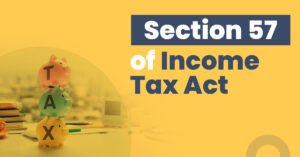The conversion of a private company or an unlisted public company into a Limited Liability Partnership (LLP) is a common strategy for businesses looking to benefit from the flexibility and tax advantages offered by the LLP structure. However, it’s crucial to understand the tax implications associated with such a conversion, especially under the provisions of Section 47(xiiib) of the Income Tax Act, 1961.
In this comprehensive guide, we will explore the tax benefits and the conditions that need to be fulfilled to ensure that the conversion is tax-neutral. We’ll also discuss the consequences of non-compliance with these conditions.
What is Section 47(xiiib)?
Section 47(xiiib) of the Income Tax Act provides that the transfer of a capital asset or intangible asset, or shares, during the conversion of a private company or an unlisted public company into an LLP is not considered a “transfer” for the purpose of capital gains tax, provided certain conditions are met. This provision is designed to encourage companies to convert into LLPs by providing tax neutrality during the conversion process.

Conditions for Tax Neutrality Under Section 47(xiiib)
To benefit from the tax exemption under Section 47(xiiib), the following conditions must be met:
- All the assets and liabilities of the company immediately before the conversion become the assets and liabilities of the LLP.
- All the shareholders of the company immediately before the conversion become partners of the LLP, and their capital contribution and profit-sharing ratio in the LLP are in the same proportion as their shareholding in the company.
- The shareholders do not receive any consideration other than their share in the profit and capital contribution of the LLP.
- The total sales, turnover, or gross receipts in the business of the company in any of the three preceding years did not exceed ₹60 lakh.
- The conversion should not result in the transfer of any assets or liabilities in violation of any law or contractual obligations.
- The LLP should not have any partner other than those who were shareholders of the company at the time of conversion.
Consequences of Non-Compliance
If any of the above conditions are not fulfilled, the exemption provided under Section 47(xiiib) is revoked. This leads to significant tax implications for both the LLP and the shareholders.
Taxability of Profits and Gains
When the conditions laid down in the proviso to Section 47(xiiib) are not complied with, the amount of profits or gains arising from the transfer of such capital asset or intangible asset or shares, which was not charged under Section 45 due to the exemption, shall be deemed to be the profits and gains chargeable to tax. This tax liability falls on:
- The successor LLP, or
- The shareholder of the predecessor company.
This income will be taxed in the previous year in which the non-compliance occurs.
Example to Illustrate Non-Compliance
Let’s assume a private company, XYZ Pvt. Ltd., converts into XYZ LLP. During the conversion, the assets and liabilities of XYZ Pvt. Ltd. become the assets and liabilities of XYZ LLP, and all shareholders become partners in the LLP with the same profit-sharing ratio.
However, in the second year after conversion, XYZ LLP admits a new partner who was not a shareholder in the predecessor company. This admission of a new partner violates the condition that only the shareholders of the company at the time of conversion should be partners of the LLP.
As a result, the tax exemption under Section 47(xiiib) is revoked. The profits or gains that were initially exempt during the conversion process will now be deemed taxable in the hands of XYZ LLP for the year in which the new partner was admitted.
FAQs
Q1: What is Section 47(xiiib) of the Income Tax Act?
A: Section 47(xiiib) provides that the transfer of assets or shares during the conversion of a private or unlisted public company into an LLP is not considered a transfer for the purpose of capital gains tax, provided certain conditions are met.
Q2: What happens if the conditions of Section 47(xiiib) are not met?
A: If the conditions are not met, the profits or gains that were exempted during the conversion will be deemed to be taxable in the hands of the successor LLP or the shareholders of the predecessor company.
Q3: Can a new partner be admitted to the LLP after conversion?
A: Admitting a new partner who was not a shareholder of the predecessor company at the time of conversion may violate the conditions of Section 47(xiiib), leading to a revocation of the tax exemption.
Q4: What are the benefits of converting a company into an LLP?
A: Conversion into an LLP offers benefits such as operational flexibility, limited liability protection for partners, and potential tax advantages, including exemption from capital gains tax under Section 47(xiiib).
Conclusion
Converting a private company or an unlisted public company into an LLP can offer several benefits, including operational flexibility and tax advantages. However, it is essential to ensure that the conditions laid down under Section 47(xiiib) are strictly adhered to in order to avoid any adverse tax implications.
Businesses considering such a conversion should consult with tax professionals to carefully plan the process and ensure compliance with all legal requirements. Understanding the provisions of Section 47(xiiib) and the consequences of non-compliance is crucial for making informed decisions and optimizing tax outcomes.
For more detailed information on tax laws and to explore other relevant topics, visit SmartTaxSaver.



